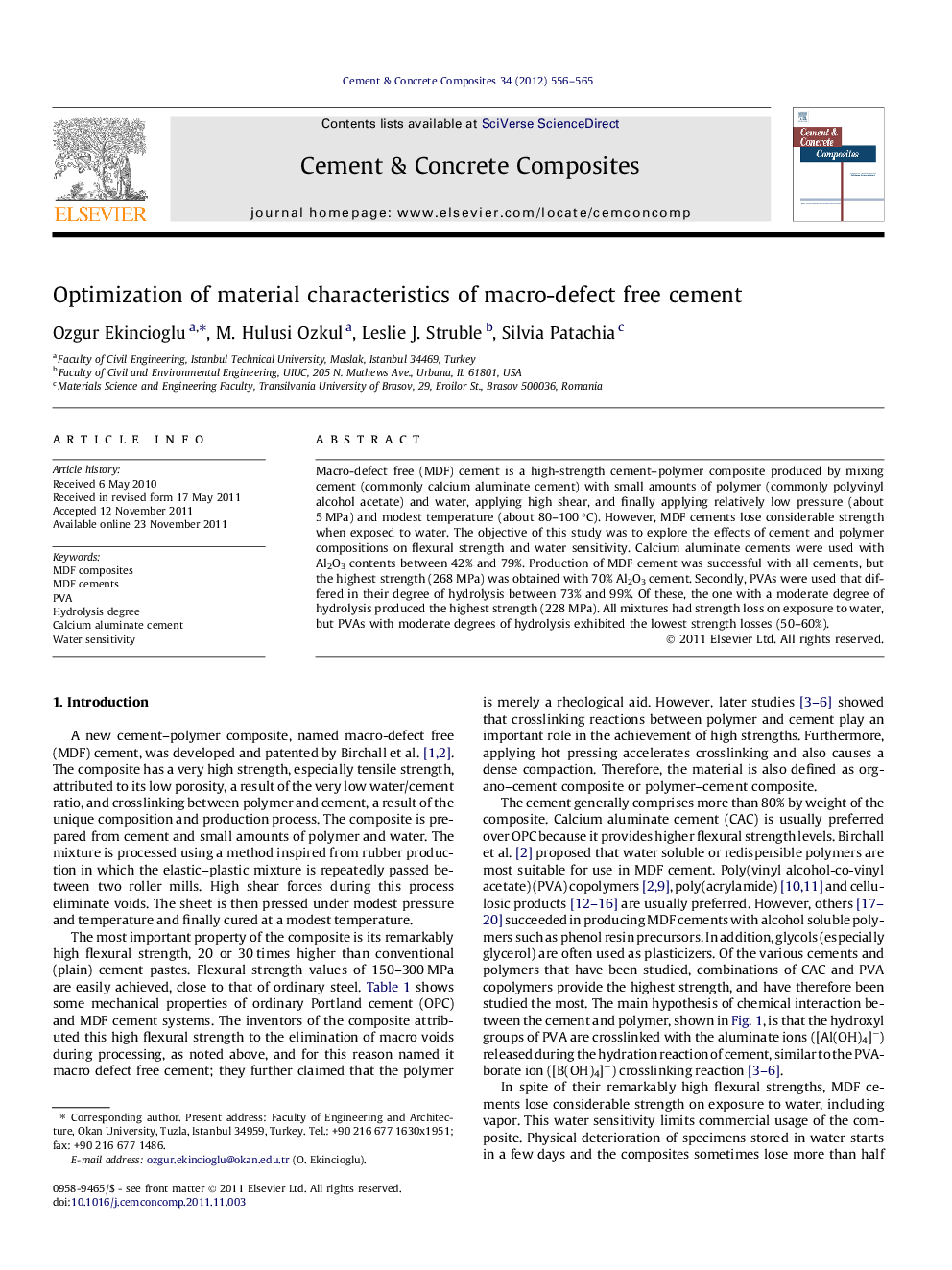| Article ID | Journal | Published Year | Pages | File Type |
|---|---|---|---|---|
| 1455040 | Cement and Concrete Composites | 2012 | 10 Pages |
Macro-defect free (MDF) cement is a high-strength cement–polymer composite produced by mixing cement (commonly calcium aluminate cement) with small amounts of polymer (commonly polyvinyl alcohol acetate) and water, applying high shear, and finally applying relatively low pressure (about 5 MPa) and modest temperature (about 80–100 °C). However, MDF cements lose considerable strength when exposed to water. The objective of this study was to explore the effects of cement and polymer compositions on flexural strength and water sensitivity. Calcium aluminate cements were used with Al2O3 contents between 42% and 79%. Production of MDF cement was successful with all cements, but the highest strength (268 MPa) was obtained with 70% Al2O3 cement. Secondly, PVAs were used that differed in their degree of hydrolysis between 73% and 99%. Of these, the one with a moderate degree of hydrolysis produced the highest strength (228 MPa). All mixtures had strength loss on exposure to water, but PVAs with moderate degrees of hydrolysis exhibited the lowest strength losses (50–60%).
